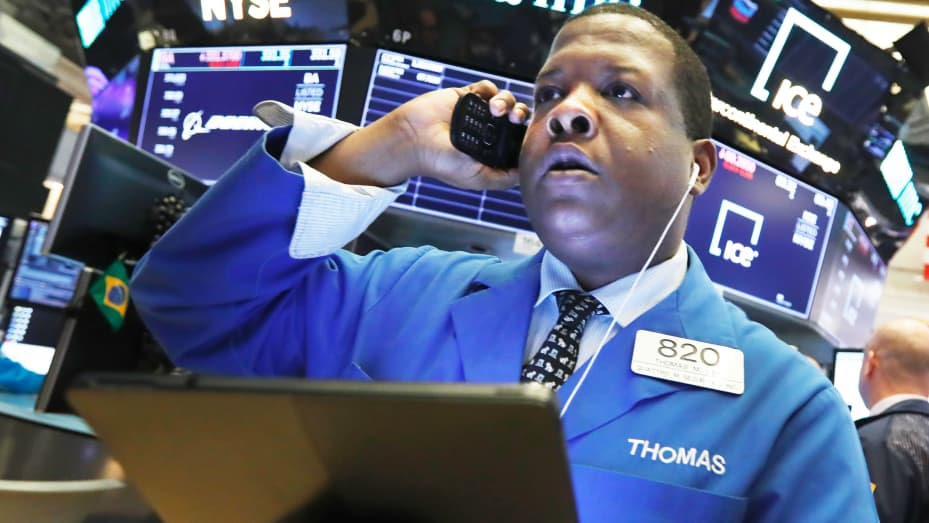EU Defers Forest Law: A Year's Reprieve, But What's Next?
Meta Description: The EU's decision to delay its groundbreaking deforestation regulation by a year sends shockwaves through the industry. This in-depth analysis explores the implications, the political maneuvering behind the delay, and what the future holds for sustainable forestry and global supply chains. Learn about the key players, potential consequences, and the ongoing fight for responsible sourcing. #EUDeforestationRegulation #Forestry #SustainableSupplyChains #EUPolitics #EnvironmentalLaw
This isn't just another news brief about a regulatory delay; it's a pivotal moment in the ongoing battle for sustainable forestry practices. The European Union's (EU) recent decision to postpone the implementation of its groundbreaking deforestation regulation by a full twelve months has sent ripples—some might say, tsunami waves—throughout the global supply chain. This isn't merely a bureaucratic shuffle; it's a complex issue steeped in political maneuvering, lobbying efforts, and the very real consequences for rainforests worldwide. Think about it: a year's delay might seem insignificant, but its impact is potentially catastrophic, jeopardizing years of progress towards protecting vulnerable ecosystems and the communities that depend on them. This delay is a critical juncture—it's a test of the EU's commitment to its ambitious environmental goals and a stark reminder of the formidable challenges involved in enacting meaningful change on a global scale. We'll delve deep into the details, exploring the reasons behind this postponement, the potential ramifications, and the long road ahead in the fight for sustainable sourcing and environmentally responsible business practices. Get ready for a comprehensive overview that cuts through the jargon and delivers the insights you need to understand this critical development. We're not just talking about trees here; we're talking about the future of our planet. We're talking about livelihoods, biodiversity, and the very air we breathe. This isn't just about rules and regulations; it's about responsibility, accountability, and the urgent need for global cooperation. So, let's dive in and unravel this intricate story.
EU Deforestation Regulation: A Deeper Dive
The EU's deforestation regulation, originally slated for implementation in late 2024, aimed to prevent the import of products linked to deforestation and forest degradation. This ambitious legislation sought to hold businesses accountable for their supply chains, ensuring that products like soy, beef, palm oil, coffee, cocoa, and timber were sourced sustainably. The impact was projected to be significant, impacting everything from the price of chocolate bars in your local supermarket to the sustainability practices of multinational corporations. The regulation, in its initial form, included stringent due diligence requirements, traceability mechanisms, and hefty penalties for non-compliance. This robust approach was lauded by many environmental groups as a landmark step forward in combatting deforestation, but it also faced significant pushback from various stakeholders, particularly within the agricultural and forestry sectors. Many argued that the implementation deadlines were unrealistic, citing logistical challenges and a lack of preparedness among businesses, especially small- and medium-sized enterprises (SMEs).
The Delay: A Year of Uncertainty
The twelve-month delay, officially announced by the European Commission, hasn't been met with universal acclaim. While some see it as a necessary breathing space to iron out implementation details, others view it as a setback, a sign that the EU is wavering in its commitment to environmental protection. The official justification centers around the need for improved guidance and clarification on certain aspects of the regulation, particularly concerning the complexity of supply chain traceability and the verification of product origin. However, whispers of intense lobbying from powerful industry groups have fueled speculation that political pressure played a role in the delay. It's a delicate balancing act: the EU needs to ensure the regulation is effective, but it also needs to avoid stifling legitimate businesses and potentially damaging trade relationships.
Impacts and Implications
The delay has created a period of uncertainty, impacting businesses across the globe. Companies that had already begun preparing for the regulation's implementation now face a year of potential readjustments. This could lead to delays in investment in sustainable practices, potentially slowing down the transition towards responsible sourcing. The impact on developing countries that rely on the export of agricultural commodities is also a major concern. A year's delay could potentially undermine their efforts to achieve sustainable development goals and may give rise to increased deforestation.
The Road Ahead: Challenges and Opportunities
The coming year presents a crucial window of opportunity. The EU must use this time wisely to address the concerns raised by stakeholders, provide clear guidance on implementation, and ensure the regulation is fit for purpose. This includes improving transparency, simplifying compliance mechanisms, and strengthening international cooperation. The EU also needs to demonstrate its unwavering commitment to environmental protection and show that the delay isn't a sign of weakening resolve. The success of the revised regulation hinges on effective collaboration between policymakers, businesses, and civil society organizations. Failure to address the underlying issues could lead to a further erosion of trust and ultimately undermine the effectiveness of the regulation.
Understanding the Key Players
The EU’s deforestation regulation isn’t a solo act; it involves a complex web of actors, each with their own vested interests. We have the European Commission, the legislative body driving the regulation. Then there's the European Parliament, which scrutinizes and shapes the legislation. Member States also play a significant role, each with its own priorities and concerns. But it's not just government bodies; industry players, from multinational corporations to small farmers, are central to the narrative. NGOs and environmental groups actively campaign for robust regulations and monitor compliance. Finally, the international community, particularly countries producing the commodities covered by the regulation, are directly affected by its implementation. This interplay of interests makes the policy process a dynamic and often contentious arena.
Sustainable Supply Chains: The Core of the Issue
The core issue underpinning the EU's deforestation regulation is the urgent need for sustainable supply chains. The current system often lacks transparency and accountability, allowing unsustainable practices to flourish. Tracing the origin of products, particularly agricultural commodities, can be incredibly challenging, making it difficult to identify and address deforestation hotspots. The regulation aims to address this by requiring businesses to demonstrate that their products are not linked to deforestation. This involves implementing robust due diligence systems, collaborating with suppliers, and using technologies like blockchain to enhance traceability. The ultimate goal is to create a level playing field where businesses that prioritize sustainability are rewarded and those that engage in unsustainable practices face consequences. This is not simply about environmental protection; it's also about economic fairness and the protection of human rights within supply chains.
Future of Forestry and Environmental Policies
The EU's delay offers a chance for recalibration, but it also spotlights the inherent difficulties in implementing global environmental regulations. The fight for sustainable forestry involves complex political, economic, and social dimensions. It requires international cooperation, technological innovation, and a fundamental shift in consumption patterns. While the delay might seem disheartening, it's crucial to view it within the larger context of the ongoing struggle for environmental stewardship. The road to a truly sustainable future remains long and winding, but we must continue to push for stronger regulations, greater accountability, and a renewed commitment to protecting our planet's precious resources.
Frequently Asked Questions (FAQ)
Q1: What are the main reasons behind the delay of the EU deforestation regulation?
A1: Officially, the delay is attributed to the need for better guidance and clarification on implementation details, particularly concerning supply chain traceability and verification of product origin. However, lobbying efforts from various industry groups have also been cited as a contributing factor.
Q2: How will this delay impact businesses?
A2: The delay creates a period of uncertainty for businesses, potentially delaying investments in sustainable practices and creating a need for adjustments to existing plans. Smaller businesses may face particular challenges in adapting to the eventual implementation.
Q3: What are the potential consequences of this delay for developing countries?
A3: The delay could undermine efforts by developing countries to achieve sustainable development goals, potentially leading to increased deforestation and negative socio-economic impacts.
Q4: What steps can the EU take to ensure the regulation is effective when it's finally implemented?
A4: The EU needs to provide clear and accessible guidance, simplify compliance mechanisms, strengthen international cooperation, and actively engage with stakeholders to achieve a balance between environmental protection and business viability.
Q5: What role do technology and innovation play in achieving sustainable supply chains?
A5: Technologies like blockchain, satellite imagery, and AI can significantly enhance traceability and transparency, making it easier to monitor supply chains and identify instances of deforestation.
Q6: What is the overall significance of the EU's deforestation regulation in the global fight against deforestation?
A6: The regulation is a significant step towards promoting global sustainable sourcing and holding businesses accountable for their environmental impact. Its success will have far-reaching consequences for the effectiveness of future international efforts to combat deforestation.
Conclusion
The EU's decision to delay its deforestation regulation highlights the complexities of enacting meaningful environmental change. While the delay presents challenges, it also offers an opportunity for improvement and collaboration. The coming year must be used effectively to address outstanding issues and build a truly robust and impactful regulation. The ultimate success will depend on a collaborative effort between policymakers, businesses, civil society organizations, and the global community. The fight for sustainable forestry is far from over, but we must remain vigilant and committed to protecting our planet's vital ecosystems. The future of our forests, and indeed our planet, depends on it.



